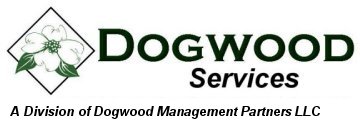How to write a better resume
Ross Statham & Jeff Bowler
Dogwood Services Inc.
You’ve got great skill sets, a good education and the right levels of experience to do the job. But do you fully communicate all of that in your resume?
We look at hundreds of resumes each week, and resumes that follow these guidelines are those that get a much closer look from us and from our clients- hot job market or not. We encourage you to read on!
- Read the requirements and job descriptions carefully. Take notes! Make sure your resume meets all requirements that are “mandatory” such as years of experience, security clearance/citizenship, type of degree, certifications and so forth. (If you don’t meet all of the mandatory requirements, take a “pass” on this job and look for one where you do meet them all. Otherwise, your resume will simply be discarded.)
- Be 100% honest with your statements and listed accomplishments. No exaggerations. No fluff.
- Put your name, address (or at least your city and state), cell phone number and email on your resume. Ideally, you should indicate “Cell/text” if you can accept text messages. We look to bring people on to our team with excellent verbal communication skills, and we will call you to discuss the job and to see how well you communicate with us. Resumes we receive without phone numbers are usually discarded.
- Many candidates’ resumes have an “Objectives” section at the top of their resume. We encourage you to change this to a “Summary” section that briefly describes you, including your experience, education, security clearance, years of experience, etc; this makes it easier for our clients to get a quick read about who you are.
- Many technical candidates have a whole section entitled “Technical Skills” or “Technical Experience.” If you think having this listed in your resume helps– especially during keyword searches– then do so!
- Ideally, you would have headings on your resume in this order (with supporting text under each): “Summary”, “Clearance & Citizenship”, “Certifications”, “Education”, “Technical Skills” and “Professional Experience.”
- Don’t just say where you worked– describe what positive things you ACCOMPLISHED. If you brought a project in under budget, if you shortened a delivery cycle, if you tightened up security, you fixed a software problem, you won an award, or if you make a client happy, SAY SO. Accomplishments, even small ones, get noticed.
- Bullet points, generally speaking, are especially helpful when listing your professional experience.
- Some people shy away from submitting a six or seven-page resume. But don’t worry- long resumes for well-experienced people are generally preferred. Just don’t ramble- say what needs to be said.
- Get a family member or friend to proofread your work. (Other wize u wil hAve embarasing typose.)
- Finally– and very important– put a cover letter on top of your resume that discusses why you meet ALL (or at least 95%) of the requirements and job description. (Remember we asked you to take notes– right?) This is the mark of a real professional and shows that you’ve taken the time and energy to read the requirements carefully.
We hope you find these suggestions to be of help no matter where you land, and best of luck in your job search!
Dogwood Services Inc. is an equal opportunity employer. Minorities, disabled persons, veterans, and disabled veterans are especially encouraged to apply.

